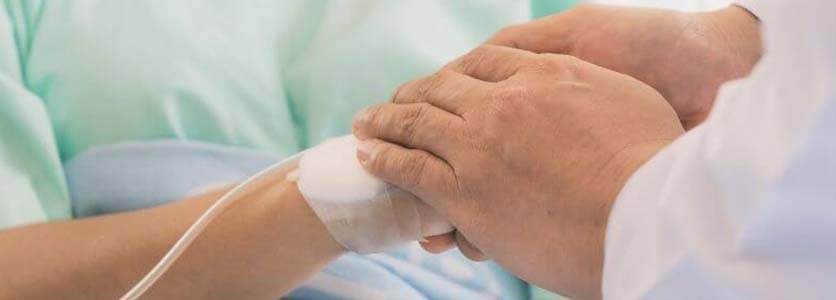Often, the utterance of the word ‘miscarriage’ is enough to make any mummy-to-be shudder. It is a most unfortunate and painful experience for any parent. And, it is more common than we think. If this has happened to any of you, don’t suffer in silence. Many have questions that may go unasked, yet it is most important for a woman to recover and take utmost care of her health after a miscarriage. Motherhood Story asks these questions for you and have an expert guide us through.
Dr Low Wea Haw, MBBS (West Indies) M. Obs & Gyn (UM), a Consultant Obstetrician & Gynecologist at Columbia Asia Hospital, Setapak, helps us get through this difficult event by shedding some light on the topic of miscarriage, and how we can care for ourselves to have healthy and successful pregnancies going forward.
When is a pregnant woman most susceptible to a miscarriage?
Miscarriage can happen any time before the 22nd week of pregnancy. However, it is most common to occur before 12 weeks of pregnancy.
What are some of the common triggers or reasons?
Miscarriage is common during pregnancy, and it may occur in about 10-20% of pregnancies.
There are some contributing risk factors to early pregnancy loss, such as:
- Maternal age – the risk is increased as maternal age advances
- Diabetes Mellitus
- Infection/viral infection with fever higher than 38°C
- Leading an unhealthy lifestyle, for example, smoking or binge alcohol intake
- Multiple pregnancies
- Being underweight or overweight
A patient with recurrent miscarriages (3 or more losses) will need further investigation and examination for its cause.
How is a miscarriage treated?
Miscarriage is treated according to the type of miscarriage, either it is missed, incomplete or complete miscarriage.
A missed miscarriage (the pregnancy/foetus is no longer alive) can be treated
- Conservatively (waiting for spontaneous abortion in 1-2 weeks) if patient’s condition (including emotion) is stable
- Surgical or medical removal/abortion if patient’s condition is not stable, for example bleeding or having abdominal pain
An incomplete miscarriage requires surgical removal.
A complete miscarriage can be treated conservatively.
What can one expect of the recovery period?

Recovery period takes 1-2 weeks’ time. A patient could also be emotionally depressed during this period of time. Bleeding could last for 5 -7 days or there could be a risk of infection in the case of an incomplete miscarriage.
What happens to our body system after a miscarriage?
Our body system will undergo a process of hormonal changes from pregnancy state to non-pregnancy state, as if we go through a delivery.
For term delivery, the recovery will take 4-6 weeks, and a miscarriage may take 1-2 weeks. Some might experience breast tenderness/engorgement especially for those miscarriage that occurs after 16 weeks of pregnancy.
What care should we take after going through a miscarriage?

Family support and understanding from the husband (Tender Loving Care) to reduce the stress that we need to go through. A well balanced diet, good hygiene care, and well hydration will help in the recovery.
What are the implications and precautions to take for future pregnancies?
Not all miscarriage is preventable. However, you can improve the chance of a healthy pregnancy by:
- Regular exercise
- A well balanced diet
- Reduce weight to normal range if overweight
- Early and regular antenatal check-up
- Reduce risk of infection by regular hand wash, avoid crowded area, and avoid contact with people who are sick
- Consume folic acid pre-pregnancy, preferably 3 months prior to conceiving
- Limit caffeine intake. Studies showed that drinking more than two caffeinated beverages a day increases the risk of miscarriage
- Avoid known miscarriage risks such as smoking, alcohol, and illicit drug usage

When will it be a safe time to try to get pregnant again?
Usually we will say after the 1st normal menses (post-miscarriage). However, that depends on whether the couple is ready for the next pregnancy, and should try to avoid pregnancy until you and your partner are prepared to cope with the anxiety of another pregnancy and possibly, another loss.
What is the risk of having a miscarriage again in future pregnancies?
The risk of miscarriage in subsequent pregnancy:
- One previous miscarriage – risk at 20%
- Two previous miscarriages – risk at 25-30%
- Three previous miscarriages – risk at 40-45%
Is there any support group for women who suffer miscarriages?

Pregnancy loss support group and Child bereavement support Malaysia may provide appropriate emotional support.
Having a sympathetic doctor will provide you with medical information as well as the support you require. Your doctor will also be able to reassure you, and lay your anxiety and fear about future pregnancies.
This article first appeared in Motherhood.com.my, 3 November 2021
Share:
Was this article helpful?
Share:
Was this article helpful?
Health Packages
Elevate your health with tailored health packages at Columbia Asia Hospital. Take charge of your health journey today.

